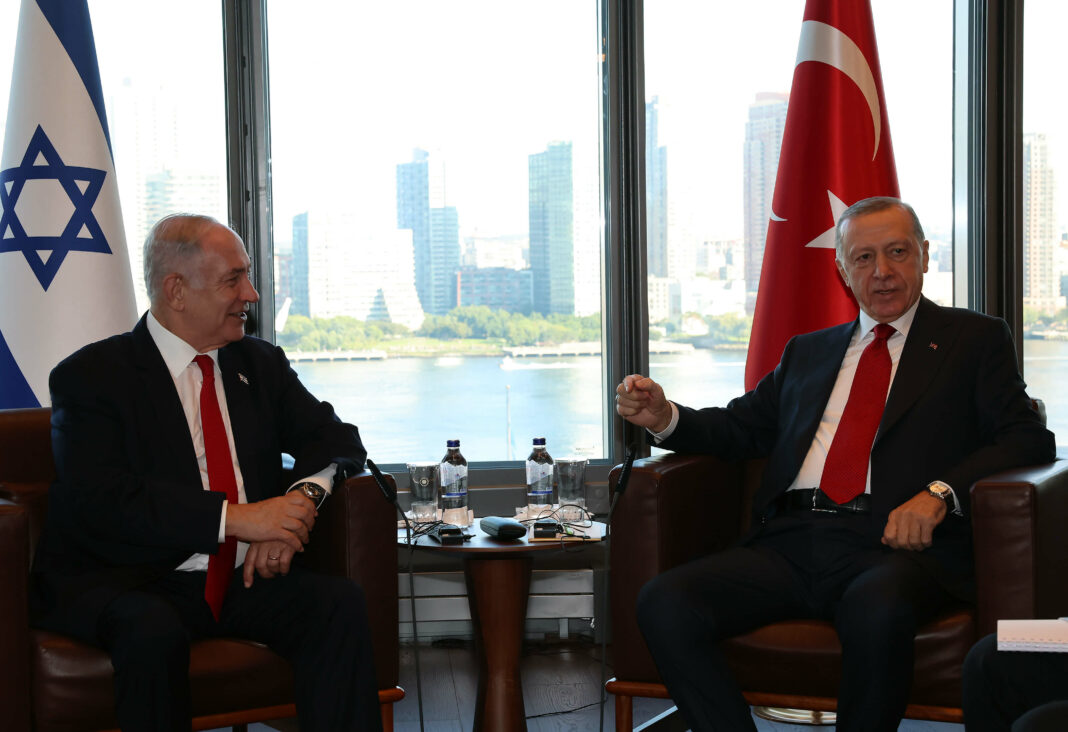Fatih Yurtsever*
While some European countries such as France, Belgium and the Netherlands have announced their intention to enforce an International Criminal Court (ICC) decision issuing arrest warrants for Israeli Prime Minister Benjamin Netanyahu and former defense minister Yoav Gallant over alleged war crimes in Gaza, Turkey, despite being one of the fiercest critics of Israeli actions in Gaza, has limited its response to welcoming the ICC’s decision as “an important step.”
“The Chamber issued warrants of arrest for two individuals, Mr Benjamin Netanyahu and Mr Yoav Gallant, for crimes against humanity and war crimes committed from at least 8 October 2023 until at least 20 May 2024,” the ICC said in a statement on Thursday.
“This decision is an extremely important step in bringing to justice the Israeli authorities who committed genocide against Palestinians,” Foreign Minister Hakan Fidan wrote on X.
Justice Minister Yılmaz Tunç called the ICC decision a belated but positive one to stop the bloodshed and put an end to “genocide in Palestine.”
President Recep Tayyip Erdoğan, one of the most outspoken critics of the Israeli actions in Gaza and who has on many occasions labelled Netanyahu a “war criminal” or the “butcher of Gaza,” has not yet commented on the ICC decision.
The ICC decision means that Netanyahu and Gallant will face travel restrictions across 123 countries that are party to the Rome Statute. However, Turkey is not among these nations, as it is not a signatory to the statute.
The Rome Statute was adopted in 1998 and entered into force in 2002. By 2022, it had been ratified by 123 countries. Of these, 33 are African states, 19 from the Asia-Pacific region, 18 Eastern European countries, 28 Latin American and Caribbean states and 25 Western European and other nations. Additionally, some countries, including the United States, Russia and China, have refused to ratify the Rome Statute and do not recognize the ICC’s jurisdiction.
The ICC investigates and prosecutes individuals for four types of crimes: genocide, crimes against humanity, war crimes and the crime of aggression. Genocide involves the specific intent to destroy a national, ethnic, racial or religious group. Crimes against humanity are serious violations committed as part of a large-scale attack against any civilian population, including murder, rape, imprisonment and torture. War crimes include grave breaches of the Geneva conventions, such as targeting civilians, hospitals or religious buildings. The crime of aggression is the use of armed force by a state against the sovereignty of another state. This crime was added to the Rome Statute in 2010, and the Assembly of States Parties activated its jurisdiction in 2017.
The ICC Chamber has found Netanyahu and Gallant criminally responsible for the war crime of using starvation as a method of warfare. They are accused of deliberately blocking essential supplies — food, water, medicine, fuel and electricity — to Gaza’s civilian population, leading to civilian deaths, including children, from malnutrition and dehydration.
The officials also face charges of crimes against humanity, including murder and persecution. The chamber said that medical supply restrictions forced doctors to perform surgeries, including amputations on children, without adequate anesthetics.
In 2004 Turkey began negotiations to join the European Union, and during this period the government of then-prime minister Erdoğan expressed its willingness to ratify the Rome Statute, which established the ICC. To prepare for this potential accession, they revised Article 38 of the Turkish Constitution to clarify the distinction between extraditing citizens to foreign states versus surrendering suspects to the ICC, thus creating a path for Turkey to extradite criminals to the ICC. However, Ankara did not ratify the Rome Statute because of the potential for prosecution by the ICC given Turkey’s ongoing fight against the outlawed Kurdistan Workers’ Party (PKK), listed as a terrorist organization by Turkey and its Western allies, the Cyprus issue and its alleged support for Islamic jihadist groups in Syria.
Despite Turkey not being a signatory to the Rome Statute and thus lacking legal grounds to arrest Netanyahu and Gallant, Ayhan Oğan, an advisor to President Erdoğan,posted a provocative message on X following the ICC decision
Sharing photos of the two Israeli officials, Oğan wrote: “Why don’t you come to Turkey? We’d like to try something.”
As Turkey is not a signatory to the Rome Statute, it does not have the legal authority to arrest Netanyahu and Gallant, despite the ICC’s decision.
Turkey’s non-signatory status to the Rome Statute remains a critical limitation in enforcing arrest warrants against the Israeli officials should they travel to Turkey.
* Fatih Yurtsever is a former naval officer in the Turkish Armed Forces. He uses a pseudonym due to security concerns.



